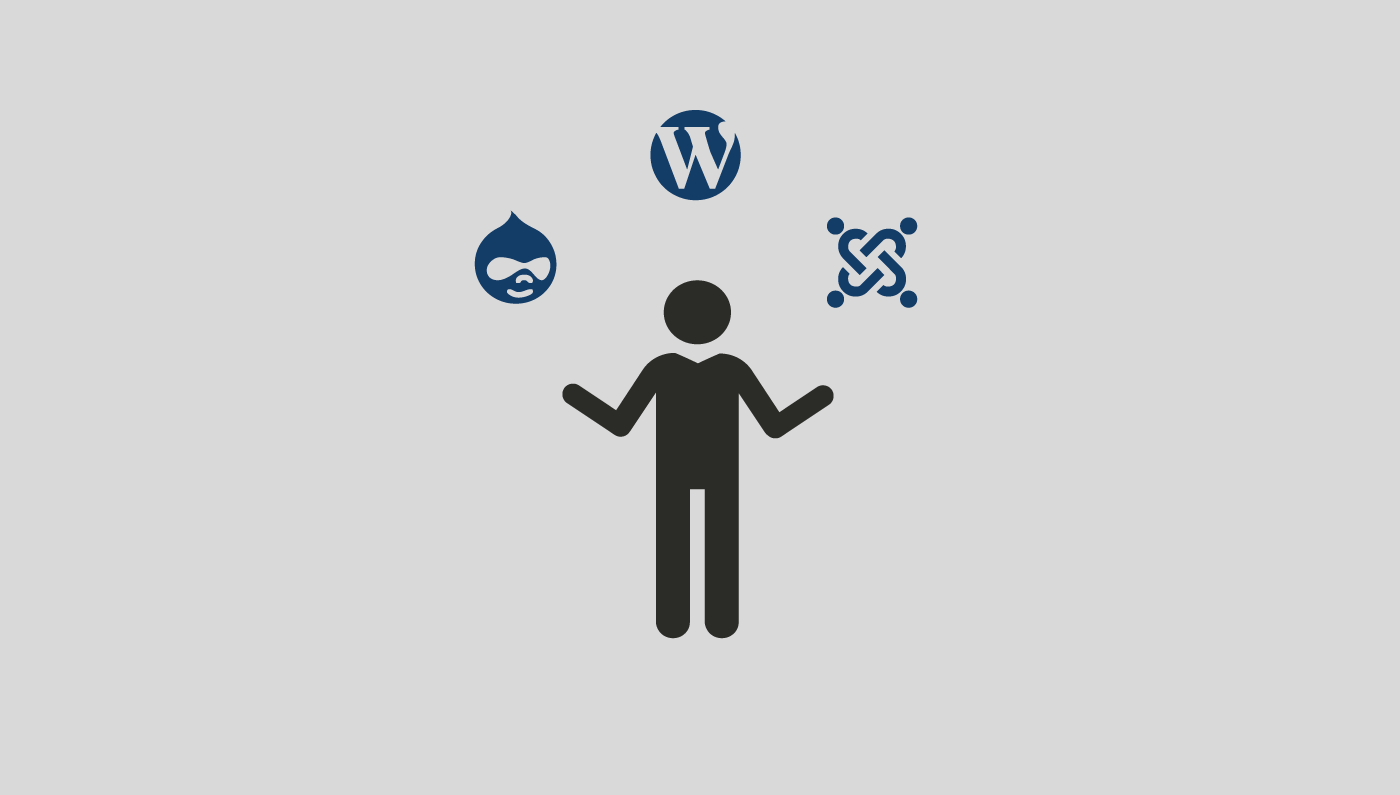Nearly every site on the web is powered by a content management system (CMS), a platform that allows easy editing and control over nearly every function of the site. But choosing a content management system isn’t always as easy as using one. Matt Hansen interviewed me this week about questions to ask when choosing a CMS, how to figure out which CMS is best for your needs, and how to implement a CMS with your team.
Q: What are some of the most common web content management systems in use today?
A: The most common are WordPress, Drupal, which is a little bit older and more complex, and Joomla, which is similar. Those three will be able to build pretty much any type of website that you want. But there are things you want to consider when you choose your CMS. The first to consider is what the primary function of the site is, because that will determine which CMS’s core functionality will fit.
For example, WordPress was originally designed as a blogging platform, to store posts and to store images and assign them to posts, and allow an entire team to manage content. On the other hand, something like Magento can do that, but it is built more for e-commerce as a shopping cart platform. It can create pages but it is intended as a complex e-commerce system.
That leads me to another question you should ask: how web savvy are you? Do you have a team working on the site, and how web savvy are they? Certain CMS’s will make it easy. WordPress, for example, has a What You See Is What You Get editor. That’s definitely one of the things you want to consider.
Q: Is there one out-of-the-box CMS that you see as relatively easy-to-use for the majority of users?
A: On 90% of sites I would recommend WordPress. It’s very simple to set up and easy to use once you’re in the back end. You can get it up and running in a half hour to an hour. It has the largest community of any CMS online, so there are more people developing it and more people talking about it. There’s a library of plug-ins and extensions that you can leverage to almost instantly extend your site’s functionality.
Q: What would be a good system for someone who may be looking to add more functionality to an existing site? Would WordPress be a good fit for them?
A: Recently WordPress has been updating a lot, and they are extending beyond the blogging platform to manage any kind of content that you want, not just blog posts. For example, our site runs on WordPress.
Q: When a team is looking to pick a content management system from the ground up, what are some of the things they should consider when selecting a CMS?
A: I mentioned considering the primary function of the site. But also you should consider what additional functionality you might want. For example, you may want to have a blog, or a standard corporate site which can have features added. Do you want an interactive calendar or a search functionality? Not all CMS’s come out of the box with those things, so you need to look and see if there are plug-ins and extensions for those.
You should also consider how much customization you want to do. Some CMS’s have built-in themes. There are companies out there that just build and sell themes as their main source of revenue. For example, there are tons of themes for WordPress.
Also, make sure to test the CMS before you make your final decision. You can get copies of each system you are considering and go through the back end to make sure you understand it.
Q: You’ve been working with many different CMS’s over the course of you career. How have you seen CMS’s change over time?
A: With web CMS’s, they are getting more complex on the back end but easier to use. So there is more functionality but you can manage it easier. They are getting faster, too.
Q: What are some things to watch out for with a CMS?
A: One thing to ask is whether or not your development team knows the language a CMS is written in. Most of them are written in PHP but some aren’t, so make sure if you have a technology team, that they are familiar with the programming language.
Don’t always assume bigger is better. For example, Magento can do pretty much anything you want in terms of e-commerce. Nike and other big merchants use it. But if you’re a startup selling 10 to 20 products, or even 100 products, I wouldn’t go with it. It takes five times as long to get going and is a lot more complex than you need. You could go with simple and get ready to go in a quarter of the time.
Make sure whatever CMS you choose has a community behind it. For example, WordPress is open source. Make sure it gets updated frequently and still gets updated, because if its not, you should switch to something else.

